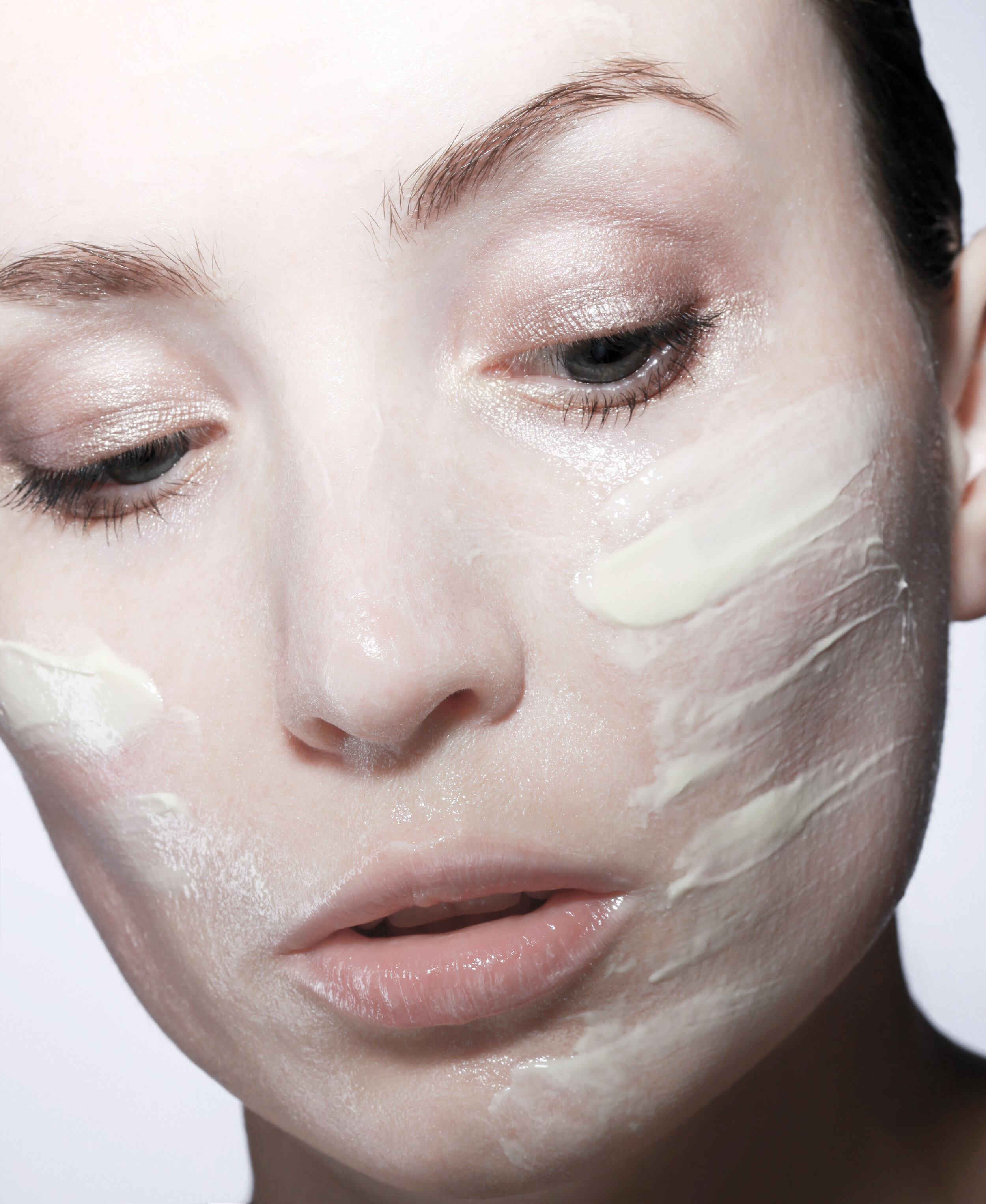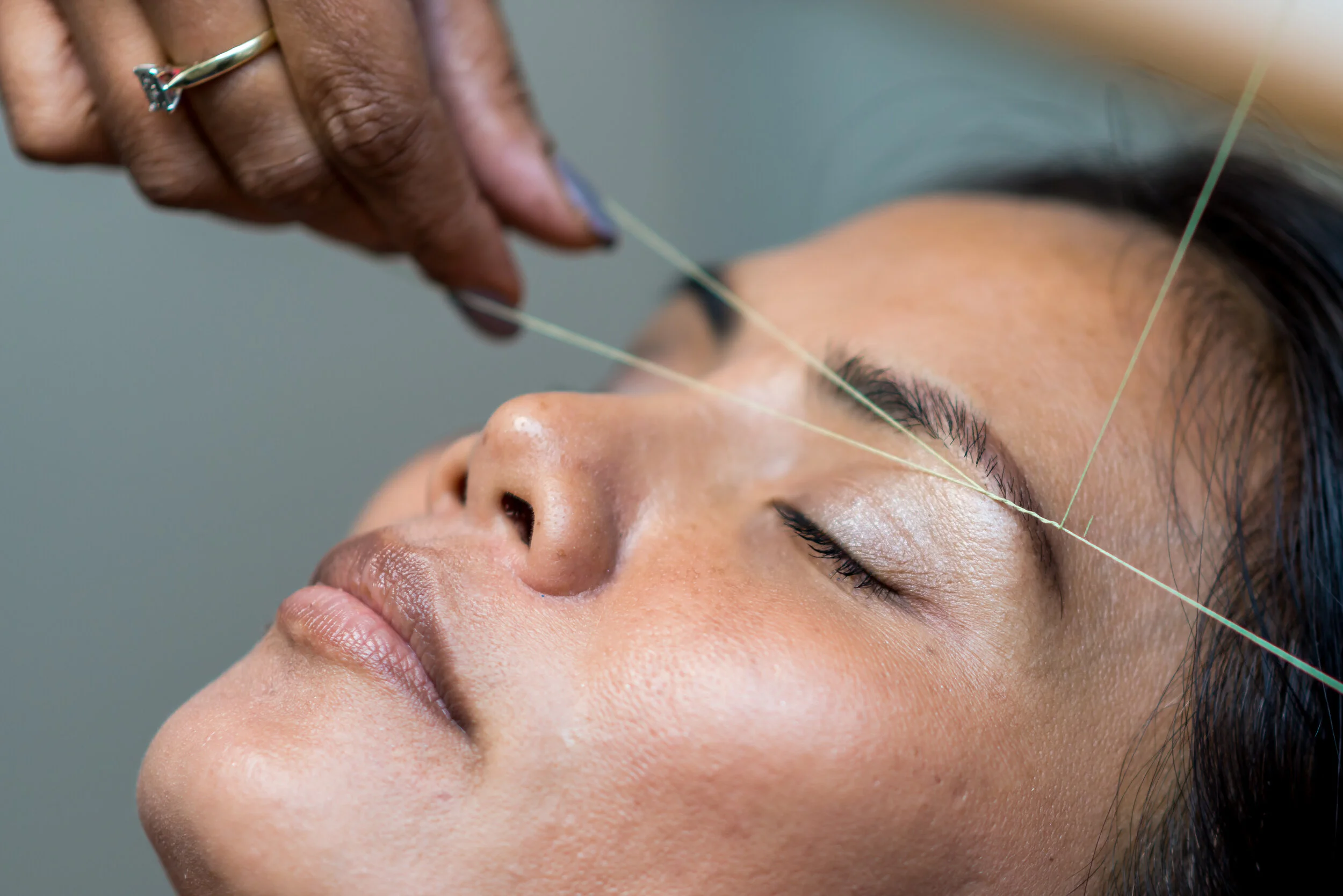The best type of exfoliation for acne
/Exfoliation is the process of ungluing dead skin cells that are stuck together. And if you have taken our e-course The 8 Steps To Clear Skin, you know that acne is caused by a genetic disease called Retention Hyperkeratosis. When we are born with RH, our follicles are basically missing the mechanism that properly washes out our follicles so dead skin cells get glued together and lodged in our skin. Since exfoliation is the process of ungluing congestion in our skin, it is basically a way of artificially replacing a mechanism that those of us with acne just don’t have naturally. When most people think of exfoliation though, they usually think of a scrub or an exfoliating brush. But there are two kinds of exfoliation, mechanical exfoliation and chemical exfoliation, and one of these is not just useless for acne but it can actually be harmful.
CHEMICAL VS MECHANICAL EXFOLIATION
Also known as physical exfoliation, mechanical exfoliation is the process of using a tool or a physical product to manually break up skin cells. A chemical exfoliant is a product that includes chemical ingredients that dissolve dead skin cells. If you are like many others, you might have already made a judgement that chemical exfoliation must be worse than mechanical exfoliation because chemicals get a bad rap but you would be wrong. There are lots of chemicals that are safe and effective and a high quality chemical exfoliant is much more useful for the clearing process than a mechanical exfoliant and it can cause less harm too. Sure, there are plenty of chemicals that are harmful but don’t overgeneralize and group naturally derived chemicals like glycolic acid together with a dangerous chemical like cyanide. After all, YOU are made of chemicals, plants are made of chemicals, babies and puppies are made of chemicals, everything is made of chemicals! Even “natural” ingredients and products are made of chemicals and since acne has to be managed both from the inside out through diet, lifestyle, etc. AND the outside in through effective skincare products, chemicals play a crucial role in the clearing process.
MECHANICAL EXFOLIATION IS USELESS AND POTENTIALLY HARMFUL FOR ACNE
Mechanical exfoliants are basically useless for acne because they only dissolve skin cells on the surface of the skin. That would be great if acne was a surface skin problem but it’s not and neither are wrinkles or discoloration which is why mechanical exfoliation are basically useless for those things too. Acne is a problem that ENDS on the surface but it STARTS deep down inside of the follicle which is why I tell my clients that I don’t really care about the acne that is already visible because by the time acne reaches the surface of the skin, it’s already at its last stage of life. So you can scrub your skin until it’s raw but it’s not going to do a darn thing in the long run. If you are lucky, you might see results for a few days or maybe a few weeks but whatever acne is underneath the surface will eventually move up. In order to manage acne in a long term and sustainable way, you have to target acne where it starts rather than where it ends which is what chemical exfoliation has the potential to do.
Also, mechanical exfoliation works through abrasion which can cause microtears in the skin which can lead to inflammation, irritation, and even infection. This is especially dangerous if you have an inflamed acne type because inflamed acne is caused by tears in the follicle wall. And finally, most forms of mechanical exfoliation are just plain gross because they remain wet and can breed bacteria and mold.
TYPES OF CHEMICAL EXFOLIATION
Alpha hydroxy acids
AHAs or alpha hydroxy acids are a class of naturally derived acids that are typically derived from plant and food sources. AHAs are used in both the food and beauty industries. In cosmetics, they can be found in many different skincare products and chemical peels and are used for a number of things including wrinkles, acne, and discoloration. There are lots of different types of chemical exfoliants including glycolic acid which is derived from sugar and lactic acid which is derived from milk. We primarily utilize mandelic acid in our serums because it’s the only AHA that offers three benefits: it doesn’t just exfoliate but it can help with inflammation and pigmentation as well.
Beta hydroxy acids
Salicylic acid is a BHA that is also naturally occurring in willow bark which is where aspirin is derived from as well. The primary difference between an AHA and a BHA is that alpha hydroxy acids are water soluble and beta hydroxy acids are oil soluble. We don’t bother using salicylic acid in any of our products because it doesn’t offer the triple benefits that mandelic acid offers and we haven’t found it to be as effective at exfoliating since there is a 2% concentration limit that is allowed in products. It is also not recommended during pregnancy and we want our entire program to be sustainable for our clients through all of the stages and phases of their lives.
Enzymes
Enzymes are similar to AHAs because they also come from naturally derived sources like papaya and pineapple and they have similar exfoliating benefits but we don’t work much with them because they are too gentle to significantly impact the clearing process.
TYPES OF MECHANICAL EXFOLIATION
Scrubs
Exfoliating scrubs typically come in the form of cleansers that contain granules that are massaged into the skin to buff away dead skin.
Exfoliating brush
There are now tons of brushes on the market for exfoliation that might include a dry brush or loofah that is rubbed on the skin or a wet brush that may be electrical or non-electrical.
Exfoliating fabric
Any fabric that is abrasive enough to physically break up dead skin cells can be considered exfoliating. This could include a towel, a loofah, a mitt or some other washcloth.
Pumice stone
Oh gosh, please don’t use a stone on your face. Please.
HOW OFTEN SHOULD I EXFOLIATE?
If you have acne, you should generally be exfoliating everyday but it depends on many factors including how resilient your skin is (how sensitive, how dry, etc), how effective the exfoliant is, and how strong it is. Our method is based on customizing product plans based on the condition of our clients’ skin on any given day so there really is no rule for how often you should use any type of skincare product because it should be adaptable and flexible given that our skin can change moment to moment. Usually when acne sufferers start our program, their skin is extremely dry and sensitive due to over exfoliation or prescription medication usage so we start them off using our exfoliating serum every other day or even every third or fourth day. Or we might have them not exfoliate at all for a few weeks and we have them just start on a product plan that is designed to nourish and balance their skin before we integrate any exfoliants. When we work one on one with our clients at our San Francisco clinic or through our virtual program, we design product plans for them that are suited to their acne type, skin type, and any other conditions they are dealing with.
EXFOLIATION IS NOT GOING TO CLEAR YOUR ACNE
Acne is a multifactorial disease which means that it’s a complicated puzzle made of many different pieces including Retention Hyperkeratosis, diet, oil, bacteria, and comedogenic ingredients. Since acne is caused by many different factors, you have to fight it in many different ways using a comprehensive and whole-istic approach. You can learn more about this multi targeted approach we have used to clear hundreds of acne sufferers in my e-course The 8 Steps To Clear Skin.













